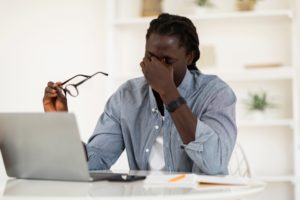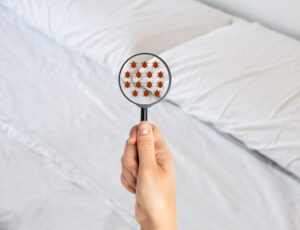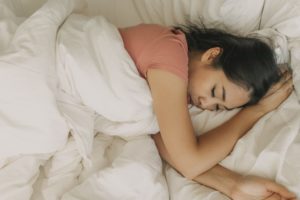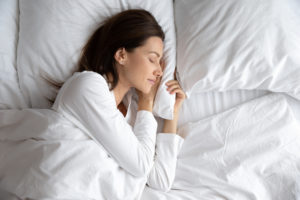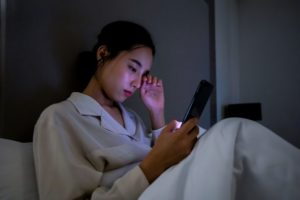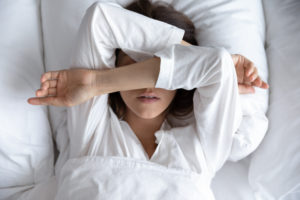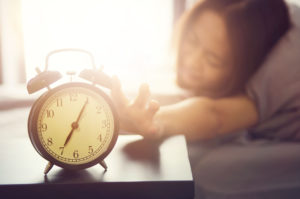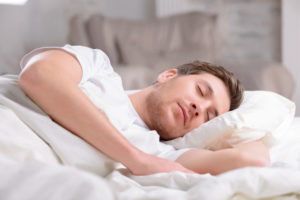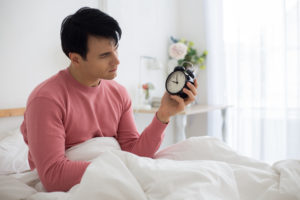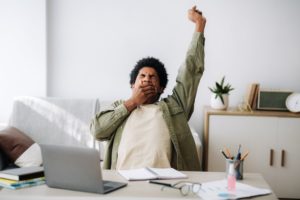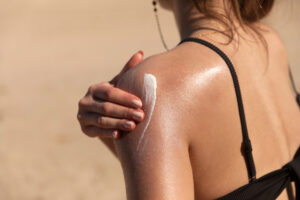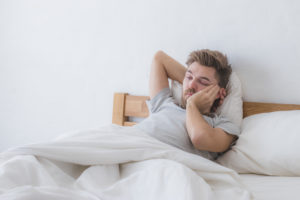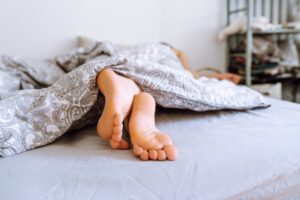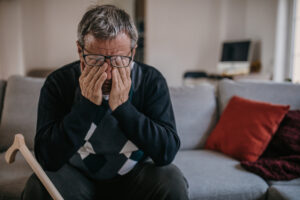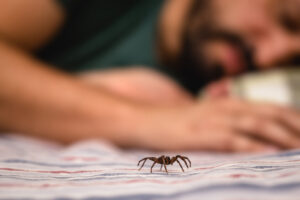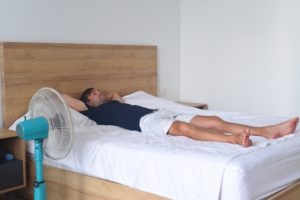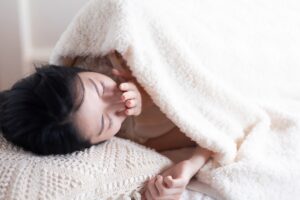How to Not Be Tired
It is natural to feel tired occasionally, especially if you have spent many consecutive hours awake. But excessive or persistent tiredness can quickly become a burden. For as many as 25% of people , daytime sleepiness interferes with their ability to stay alert and engaged at home, school, or work.
While not getting enough sleep is the most frequent reason for daytime sleepiness, there are many factors that can influence both your sleep and your daytime energy levels. Understanding the cause of sleepiness and employing practical tips can help you take steps to feel more alert during the day and also enhance your sleep each night.
Prioritize Sleep Consistency
Sleep hygiene is a way of describing everyday habits that improve your nighttime rest. One key to improving your sleep hygiene is to make sure you set aside enough time to get at least 7 hours of sleep each night. While this may sound simple, more than 30% of adults sleep less than seven hours each night.
In addition, tiredness often develops after a period of sleep deprivation. Missing even a few hours of sleep can cause a person to wake up feeling tired and struggle to stay alert during the day. Multiple nights of partial sleep loss can add up, resulting in a sleep debt that can be just as debilitating as skipping an entire night of sleep.
While it may be tempting to sleep in later on weekends, large shifts in your sleep patterns can unsettle your sleep-wake rhythms. If you decide to get up early or to sleep in, try not to shift your habitual sleep schedule by more than an hour.
Soak Up Morning Light
Whether a person feels tired or alert at any given time is mainly driven by their circadian rhythm, or the 24-hour clock that regulates processes within the body. Some people have advanced circadian rhythms (early birds) and some have delayed rhythms (night owls). However, everyone can feel excessive daytime sleepiness as a result of circadian shifts.
Changes to your environment, specifically your daylight exposure, can cause a change in the natural production of the sleep-promoting hormone melatonin. Well-timed exposure to light can help align your circadian rhythms to the natural cycle of daylight and darkness. Research suggests that exposure to natural light in the morning may help you feel more energized during the day and fall asleep earlier at night.
Get Active
Physical activity is associated with an abundance of health benefits, including improved sleep. Experts recommend starting small and working towards 150 minutes of activity each week. But it is best to avoid more strenuous and stimulating exercise too close to bedtime – at least 2 or 3 hours before.
In addition, experts today believe sleep and exercise have a bidirectional relationship. Insufficient or poor-quality sleep can lead to lower levels of physical activity the following day.
Check Your Diet
What you eat can affect how well you sleep and how alert you feel during the day. For instance, having low blood sugar can make you feel tired, but so can consuming too many foods and drinks that are high in sugar . For overall nutrition, experts recommend moderating your intake of saturated and trans fats and focusing on a diet that includes a wide variety of foods.
Eating too late, smoking cigarettes, drinking alcohol, or consuming caffeine can interfere with your sleep. Try eating dinner more than two hours before bedtime, cutting back on cigarettes and nicotine products, and avoiding alcohol right before bed. Also, avoid caffeine in the late afternoon and evening, since it can linger in the body for up to eight hours increasing your likelihood of fragmented sleep.
Try a Midday Nap
In many cases, tiredness is the body’s way of signaling that it needs sleep. Napping can be a helpful tool for reducing daytime sleepiness. Research shows that, although not a substitute for quality sleep, naps can help you make up for sleep debt, feel more alert, and improve your daytime performance.
To get the most out of a nap, find a comfortable place to rest, set an alarm, and use ear plugs and an eye mask to minimize distractions. Ideally, daytime naps should be around 20 minutes. This allows you to gain the benefits of a short rest without feeling grogginess after waking.

Stay Hydrated
Tiredness can result from dehydration , so make sure that you are drinking plenty of fluids during the day. Water is an easy way to stay hydrated, though some of your daily liquids can also come from other drinks and foods that contain high amounts of water, like fruits and vegetables. Although should adults try to consume around 2 to 3 liters of water a day , you should generally also increase your fluid consumption during hot weather, after exercise, and when you are ill.
Minimize Light Sources
Your circadian rhythms are highly sensitive to light exposure in the hours right before bedtime. It may help to switch off or dim lamps and other light sources as you wind down. This also means turning off computers, smartphones, and TVs before bed, since the blue light emitted by screens can increase the time it takes to fall asleep.
Wind Down
As evening approaches, create a routine that prepares you for restful sleep. Try scheduling at least an hour in the evening for quiet activities that help you relax. Try out different activities to find what works best for you, like journaling, reading, or taking a warm bath. To further enhance relaxation, consider using relaxation techniques like deep breathing or meditation.
Improve Your Bedroom
Healthy sleep hygiene also involves designing your bedroom for restful sleep. Set your bedroom to a cool yet comfortable temperature, and keep your sleep space free from noises, lights, or distractions that may wake you up at night.
Try to establish an association between your bed and solid sleep. This means trying not to eat, work, or watch TV in bed. In addition, do your best not to lie awake in bed for more than 20 or 30 minutes. If you are having a hard time falling asleep, get out of bed and find a way to relax until you feel tired again.
Get a Checkup
It may be time to contact your doctor when sleepiness begins to interfere with your ability to function during the day. A checkup with your doctor can help find the cause of unexplained tiredness. Your doctor can review your sleep habits with you to look for issues that may be making you tired.
Many medical conditions and sleep disorders can cause people to be tired during the day. Your doctor can also discuss any medications and supplements that may be causing your daytime alertness.
Daytime tiredness is associated with several mental health conditions, so it may be helpful to check in with a mental health professional about your symptoms. Additionally, mental health professionals can help you improve your sleep hygiene. While improving sleep hygiene may sound simple, it can be challenging to change long-term habits that interfere with sleep. Counselors and other mental health professionals have a variety of tools to help you make lasting lifestyle changes.

Still have questions? Ask our community!
Join our Sleep Care Community — a trusted hub of sleep health professionals, product specialists, and people just like you. Whether you need expert sleep advice for your insomnia or you’re searching for the perfect mattress, we’ve got you covered. Get personalized guidance from the experts who know sleep best.
References
10 Sources
-
Chervin, R. D. (2022, October 4). Approach to the patient with excessive daytime sleepiness. In T. E. Scammell (Ed.). UpToDate.
https://www.uptodate.com/contents/approach-to-the-patient-with-excessive-daytime-sleepiness -
Liu, Y., Wheaton, A. G., Chapman, D. P., Cunningham, T. J., Lu, H., & Croft, J. B. (2016). Prevalence of healthy sleep duration among adults–United States, 2014. MMWR. Morbidity and mortality weekly report, 65(6), 137–141.
https://pubmed.ncbi.nlm.nih.gov/26890214/ -
National Heart, Lung, and Blood Institute. (2022, March 24). Sleep deprivation and deficiency.
https://www.nhlbi.nih.gov/health-topics/sleep-deprivation-and-deficiency -
Maski, K. (2022, May 23). Insufficient sleep: Evaluation and management. In T. E. Scammell (Ed.). UpToDate.
https://www.uptodate.com/contents/insufficient-sleep-evaluation-and-management -
MedlinePlus: National Library of Medicine (US). (2019, May 7). How much exercise do I need?
https://medlineplus.gov/howmuchexercisedoineed.html -
National Institute for Occupational Safety Health. (2020, April 1). Diet. Centers for Disease Control and Prevention.
https://www.cdc.gov/niosh/emres/longhourstraining/diet.html -
National Institute for Occupational Safety Health. (2020, April 1). Napping, an important fatigue countermeasure. Centers for Disease Control and Prevention.
https://www.cdc.gov/niosh/emres/longhourstraining/napping.html -
MedlinePlus: National Library of Medicine (US). (2019, May 29). Dehydration.
https://medlineplus.gov/dehydration.html -
Taylor, K. & Jones, E. B. (2022, October 3). Adult dehydration. In StatPearls. StatPearls Publishing.
https://www.ncbi.nlm.nih.gov/books/NBK555956/ -
A.D.A.M. Medical Encyclopedia. (2022, May 12). Changing your sleep habits. MedlinePlus.
https://medlineplus.gov/ency/patientinstructions/000757.htm





